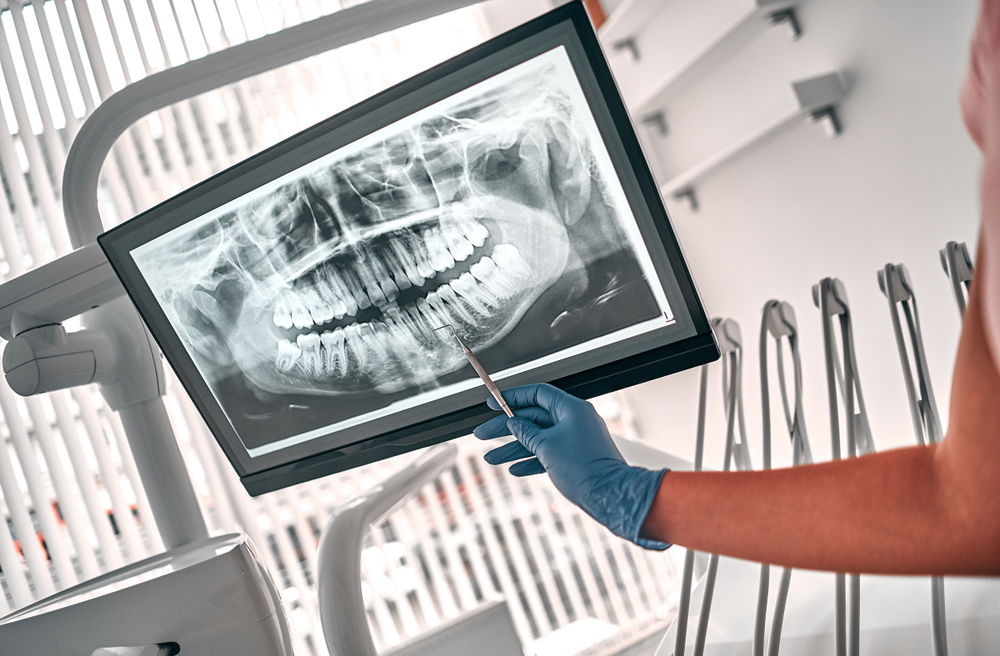Patients often ask dentists if it’s safe to get an x-ray.
Their concern is understandable. It’s always a good idea to be cautious when radiation is involved.
However, dental x-rays are considered safe in most cases.
Let’s talk about this a little more.
But first, what is a dental x-ray?
A dental x-ray is also called a radiograph. It uses low levels of radiation (x-ray beams) to capture images of your teeth, tissue, bones and other hidden structures that aren’t visible to the naked eye. This process is quick and there’s no pain involved!
There are numerous types of dental x-rays, and each is best suited for a particular situation as they take slightly different angles. These machines include bitewing, occlusal, panoramic, extraoral and periapical x-rays. Why are dental x-rays used as a diagnostic tool?
X-rays give dentists a comprehensive view of patients’ mouths, in case there’s signs of trouble beneath the surface (infection or structural problems).
For example, the early signs of tooth decay aren’t usually visible by glancing at your mouth, but can be detected with an x-ray – which means that treatment can occur sooner than usual – before the problem worsens.
X-rays are also used to detect traumatic injuries or structural issues that need addressing (such as abnormal growth in wisdom teeth, or overcrowded teeth).
Another reason to get an x-ray :
If your fillings, root canals, crowns or bridges are causing you discomfort – there may be problems beneath the gums that need to be addressed.
What about radiation ?
There are concerns that the accumulation of radiation in our bodies over time may increase the risk of developing diseases such as cancer. However, dental x-rays are generally considered safe because they emit low levels of radiation. Dentists should always take precautions though, such as placing a lead apron and thyroid guard over your body to minimise exposure. The amount of radiation from a standard dental x-ray has been compared to radiation exposure from a one to two hour flight, or even a day spent outside in the sun.
Having said this
You don’t want to be getting dental x-rays on a regular basis – especially if you don’t have oral problems.
Adults who aren’t at high-risk of developing cavities should get a dental x-ray every two to three years. Children may need more frequent x-rays, to monitor the growth of their adult teeth (every one to two years).
It’s worth noting that digital x-rays typically produce less radiation that traditional x-rays, so this is a better option if you need to have frequent x-rays (or feel nervous about getting x-rays, even though the radiation is low).
Is it safe for pregnant women to get x-rays?
We recommend avoiding all x-rays while pregnant, unless it’s a medical or dental emergency.
If you’re pregnant (or if there’s any chance that you may be) – please let your dentist know before any x-rays are taken.
In cases of emergency, your dentist will take every precaution to protect your baby (such as placing lead shielding and a thyroid guard over your body).
However, if there’s a viable alternative (such as an ultrasound), your dentist will suggest it. Although dental x-rays emit low levels of radiation, developing fetuses are more vulnerable to the effects of radiation.
Book an appointment with North Square Dental:
Our experienced team values every patient, and we make sure you’re safe and comfortable when getting x-rays. Call us on (02) 8213 7455 or fill out our contact form to find out more.

